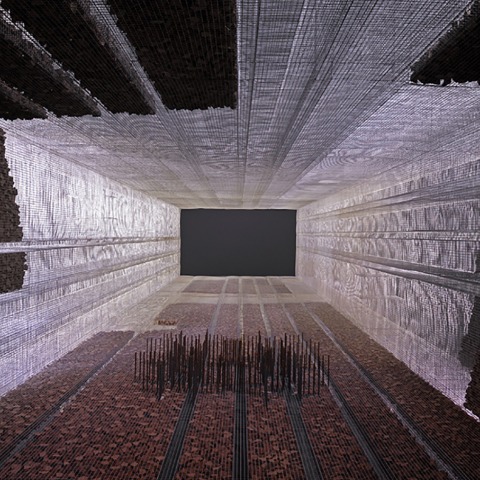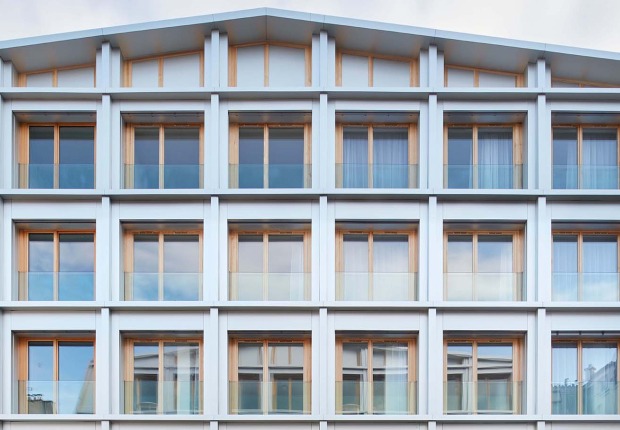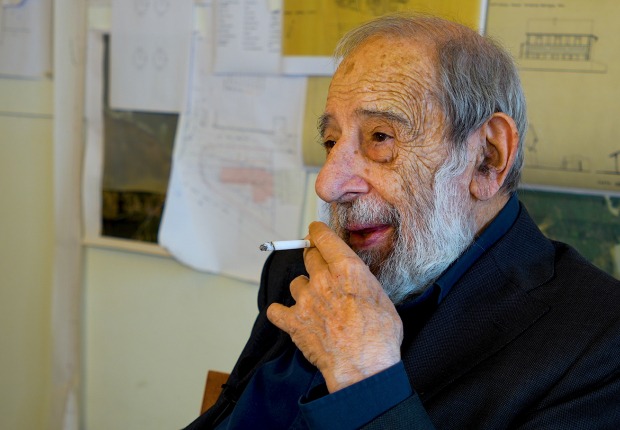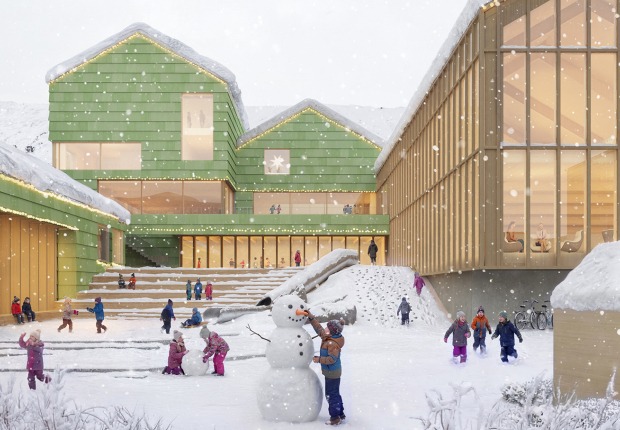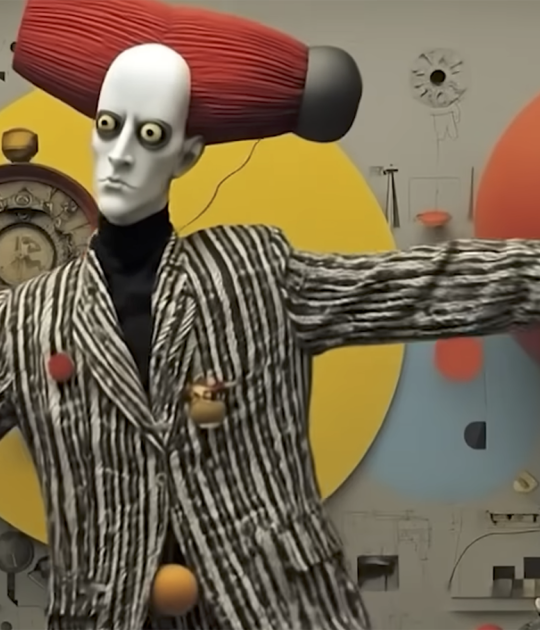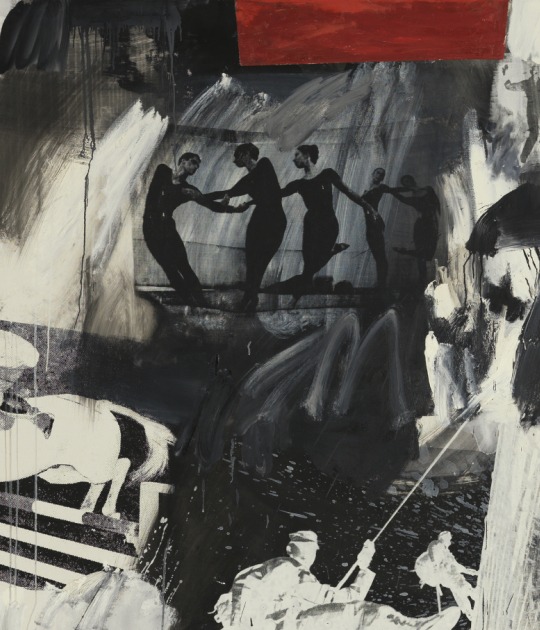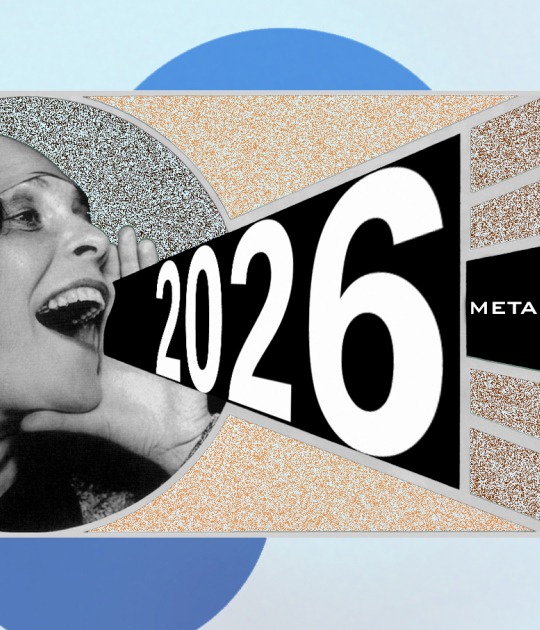Inspired by the local ruins, the sculpture has been made with metal mesh and cork, reaching 26 meters high, including a video installation that resembles the fire and vegetation selected by Matteo Foschi. Alberonero designed an installation based on translucent fabric that symbolizes a vacuum trip. The sound narration of Max Magaldi is formed by independent but interconnected musical segments, which can only be heard together from the center of the structure.
Project description by Edoardo Tresoldi / Studio Studio Studio
Studio Studio Studio, the new interdisciplinary lab founded by Edoardo Tresoldi, presents Gharfa: an experiential pavilion installation within the temporary creative project "Diriyah Oasis", designed and curated by Dubai-based studio Designlab Experience, and located in the Saudi Arabian capital of Riyadh.
This project, commissioned by the Diriyah Season Committee, is situated in close proximity to the At-Turaif District; a UNESCO World Heritage Site about to undergo a major developmental upgrade that includes the opening of a plethora of museums and cultural institutions. Furthermore, this entire initiative is taking place in a period of major changes for the country, which has only just opened its doors to international tourists for the first time last September.
As the artistic director of Studio Studio Studio, Edoardo Tresoldi worked on Gharfa in collaboration with designer Alberonero, musician Max Magaldi, and garden designer Matteo Foschi, the founder of Odd Garden Studio. Their site-specific installations use different mediums to create distinctive spaces in which visitors can meet, rest, and meditate.
Gharfa stages the intimate relationship between man, landscape and architecture through the reinterpretation of the human relationship with cultural archetypes. Visitors experience a theatrical world where technique, reality, and illusion are all intertwined.
Inspired by the local ruins, the installation presents itself as a large, complex sculpture peaking at 26 meters at its highest point. Within Gharfa, Edoardo Tresoldi’s Absent Matter makes use of his signature wire mesh, though this time combined with cork to outline and carve out intimate spaces and narrow paths, inviting the visitor to come in and discover it all. For the first time in his career, Tresoldi creates a work of ephemeral architecture that is not reliant on melding visually with its surrounding. Rather, he creates a structure that is an architectural fortress, offering mere glimpses of what is happening within it.
Duna, the semi-transparent fabric-based installation by Alberonero, dialogues in a complementary way with Gharfa, symbolizing a white horizon, a journey into the void. Right on the threshold of the visible and the invisible, this work explores space as a place in which one can disappear – stepping away from sightand its tangible perception, creating a subtle limbo that isolates the visitor from the outside world.
Inside the space, a video installation created by Tresoldi virtually recreates fire and its inherently human aggregation force. Adding a touch of traditional Arabian cultural heritage, the use of a carpet in another installation acts as a counterpart to a sky made of artificial clouds, suggesting a metaphorical connection between traditional and contemporary worlds.
The complexity brought by the involvement of Arabian style decor, often characterized by symmetrical yet delicate features, gets sublimated by Tresoldi and Matteo Foschi’s green installation, in which the greeneryis made to intertwine with industrial materials. In Max Magaldi's sound narration, each musical segment is simultaneously independent yet interconnected. The composition can only be heard in its entirety from the center of the structure. This way, the particular spatial arrangement of the installation allows visitors to experience their own personal audio "mix".
By creating a multi-disciplinary environment through the interplay of digital and analog, anthropic and natural, geometric and organic, Gharfa shapes an expressive experience that first shatters and then restores the thin line between collective imagination, individual imagery, and narrative fiction.
The theatrical artifices and scenic materials are not hidden, but proudly exhibited. Projectors and scaffolding become an integral part of the installation. The result is a narrative of different surfaces, which in turn become a stage for personal perceptions, while highlighting the structure’s backstage anatomy.
Each element of Gharfa has a life of its own but was thought and conceived as part of an orchestral composition that interprets cultural contaminations as a reference point for future artistic languages.
According to a specific choice of the artists, Gharfa’s visual storytelling has been divided into two chapters: “Chapter 1_Light up”, featuring Humphrey McDermott’s lighting design, which shows nighttime images and accompanies this press release, and “Chapter 2_ Shine through”, that includes daytimes pictures and will be available soon.
